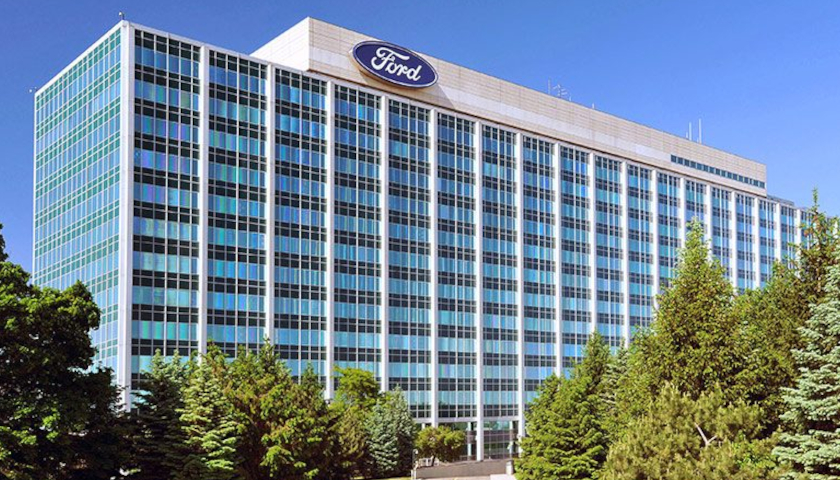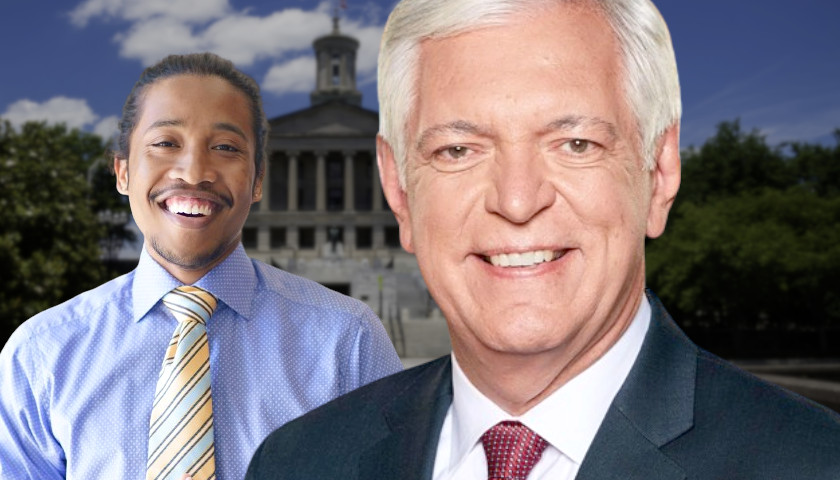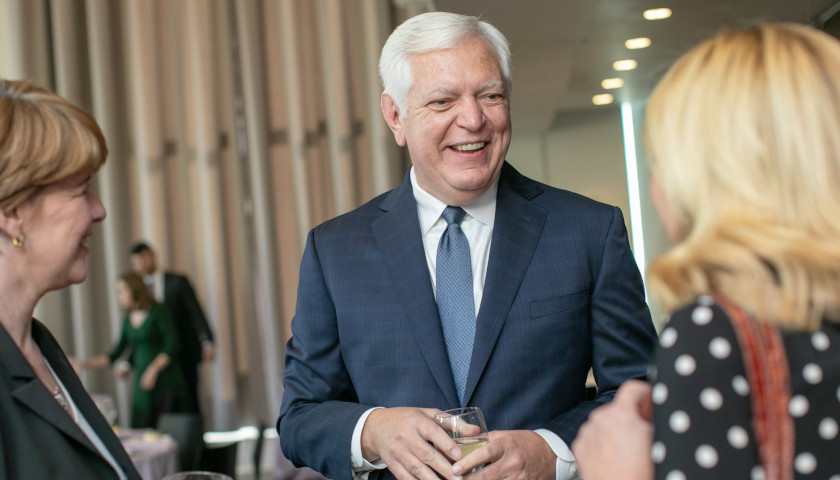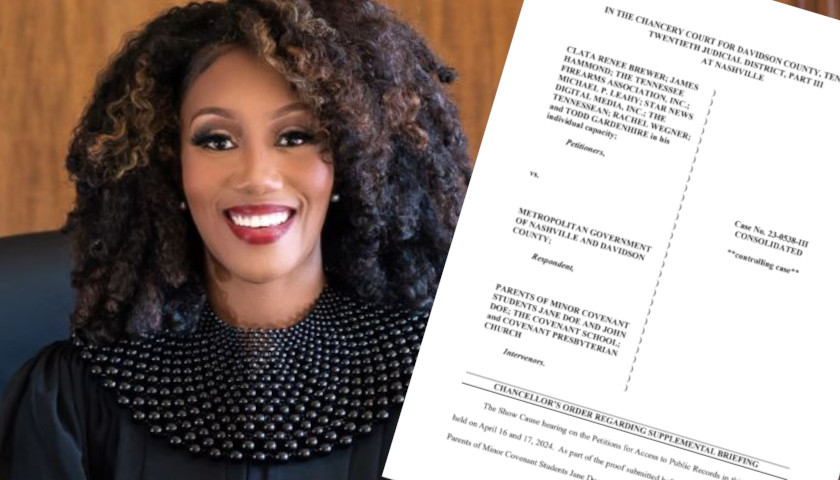Live from Music Row Tuesday morning on The Tennessee Star Report with Michael Patrick Leahy – broadcast on Nashville’s Talk Radio 98.3 and 1510 WLAC weekdays from 5:00 a.m. to 8:00 a.m. – host Leahy welcomed Maury County Mayor Andy Ogles in studio to describe the nature of negotiations in bringing a large corporation to the state.
Leahy: I want to get into the comparison between the negotiations and the $900 million of incentives that the state is giving Ford Motor and its electric battery affiliate to induce them to go into this West Tennessee mega site.
You’ve just negotiated a couple of deals in Maury County. In your capacity as mayor of Maury County, one with General Motors, one with LG Chem. LG Chem is a South Korean manufacturer of electric batteries.
Ogles: LG, that’s a huge Corporation. Your refrigerator and all sorts of other things maybe LG, but then they have a subsidiary that makes the battery technology.
Leahy: Let’s start off with General Motors. Tell us what the deal negotiations were about and then tell us what happened.
Ogles: General Motors obviously came to Tennessee. I think it was 1986 when it all began. And then the process to break ground et cetera. And since that time, there’s been a renewal of their pilot.
And then they were coming towards the end of that term, and they had some time left on it. But they were looking at investing somewhere in their North American portfolio to convert a plant from combustion vehicles to electric.
And the question is, where would that fall? And then, of course, if you are a host county, so that’s a county such as Maury County that hosts a large manufacturer, what does that investment or not getting the investment do to the long-term nature of that relationship?
So we’re coming to the term of the agreement. And if they don’t invest, do we fall in priority and ultimately do they leave and you end up with a shuttered plant, right?
Leahy: We don’t want a shuttered plant.
Ogles: We don’t want a shuttered plant. Look at Lordstown, look at Detroit and some of those things.
Leahy: Lordstown is in Ohio. Detroit is in Michigan. Spring Hill is in Tennessee. Enough said there. (Laughs)
Ogles: We win. We were competing for this investment, it was fairly bold. Keep in mind when we started these conversations, the wave of electric vehicles outside of Tesla really hadn’t begun yet.
And so we were cutting some new ground as far as competing for these technologies. We were still on that cusp of whether or not this would be the technology that would really, truly transform the automotive industry and obviously our lives.
And since that time, we’ve seen Ford double down in Canada and Ohio. I think they’re now doing something in Europe. General Motors of course.
Leahy: They’re all jumping into electric cars asterisk. There is a heavy political incentive.
Ogles: That’s right.
Leahy: Because it’s, ‘green.’ Asterisk. Is it really green? But that’s another topic.
Ogles: We can have a side conversation on what this does to our dependency on China. But, hey.
Leahy: One issue at a time.
Ogles: We’re haggling to buy toilet paper at Kroger, but, yeah, we want to be more dependent on China. Never mind.
Leahy: I’m totally in agreement on this. By the way, where is all that lithium coming from for these batteries?
Ogles: Unless you have to have a special session, the incentives given by the state through ECD are normally confidential and don’t come out unless ECD releases them.
So they have large bulk dollars in their budget. For example, Facebook was given roughly $60 million to recruit them to come here.
Leahy: Oh. Oh. I can’t bear it. $60 million to Facebook.
Ogles: Give or take a million or two.
Leahy: They don’t like us. They’re not very nice to us. And the state gave them $60 million.
Ogles: Yeah, I would much rather recruit a Ford, albeit maybe not a billion dollars. But again, I digress versus a Facebook or an Amazon who has an agenda that really works against who we are as Tennesseeans.
Leahy: And particularly against The Star News Network and The Tennessee Star. Facebook has throttled us. Three and a half years ago we had 15,000 some odd likes on our Facebook page. They have not allowed us to add any in three years.
Ogles: Wow.
Leahy: Because they don’t like our message. And Tennessee gave them $60 million.
Ogles: There’s some caution there. And this is where maybe having a history major as part of political science is beneficial. But I would just encourage ECD and the governor to study the Trojan War.
(Laughter) You invited this big giant Trojan horse to Nashville, you gave them $60 million, and then you’re surprised when they’re working against you and the general assembly.
Leahy: I’m shocked. I’m shocked.
Ogles: They literally are saying, well, you shouldn’t do this transgender bill. You shouldn’t do this life bill. You shouldn’t do this marriage bill. They’re freaking Liberal. Why do we want them here? Get the hell out.
Leahy: I got no problem.
Ogles: But I’m talking about Facebook.
Leahy: When you negotiate, what’s the county’s role in the LG Chem and General Motors deal, and who do you talk to? You talk to the economic development people.
You talk to the General Motors executives. You talk to the LG Chem. What’s that like? Do you sit down and have a person-to-person meeting?
Ogles: Yes. No one negotiation is going to be the same. Obviously, the state is focused on its incentives and the pot of money that they can give to incentivize. From a locality as the host community, you’re really trying to connect with the various executives at your respective company.
So a good example would be Mersen. Mersen is a billion-dollar French company publicly traded. And we had an old carbide plant in Colombia that had been idle for about 18 years. And literally, when it closed had equipment that had been recently purchased.
So you have brand new equipment that has been sitting there for 18 years. You go into the building and it’s like someone stopped time and just locked the door. It’s crazy when you would go to the plant.
But because of that facility, we were on the list. We didn’t have some of the particulars that they were looking for. So they had a top 10, and we were number 10. They narrowed it to their top five, and Maury County was number five.
They narrowed it to three, and we were number three. We just kind of kept hanging in there. But through that process, I really connected with their CFO.
I just told them at the end of the day, I said, when you come here, you don’t want to be here, you should go somewhere else. Because you are going to spend millions and millions of dollars.
Leahy: What’s the status of that?
Ogles: So he called me when I was literally in the garden. And he said I want you to know that we chose Maury County. And he said it’s because we felt we were like we were at home.
Leahy: And when did that happen?
Ogles: Oh, they’ve been in there now for a year and a half.
Leahy: Good job.
– – –
Tune in weekdays from 5:00 – 8:00 a.m. to the Tennessee Star Report with Michael Patrick Leahy on Talk Radio 98.3 FM WLAC 1510. Listen online at iHeart Radio.








